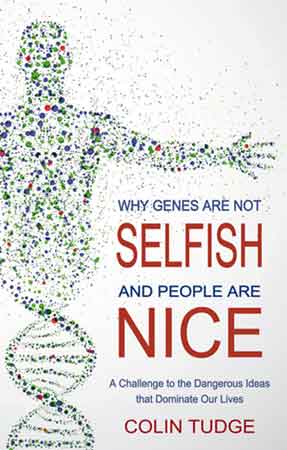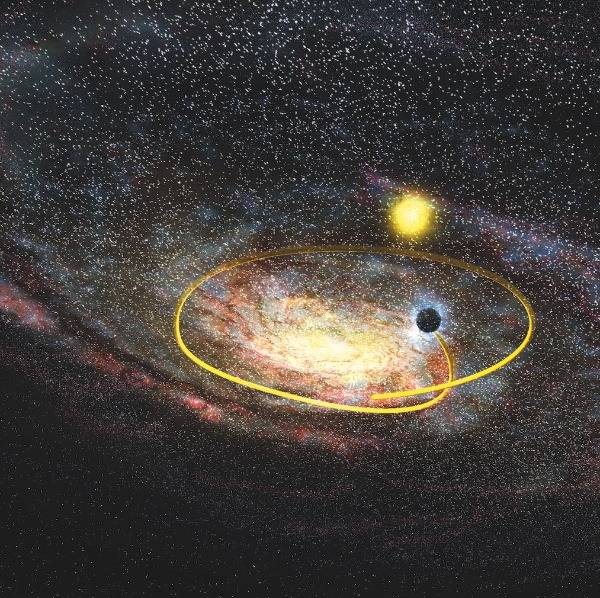
Colin Tudge has big problems with rational, materialist atheists. He believes that they are corporate shills who “hitch their wagons to the hawkish power-machine” in order to stay in charge and receive large salaries from “rich biotech companies” and – the horror! – “universities”. Their ideas are as wounding as the physical attacks of Stalin and Mao. They are bellicose, sociopathic fools who perpetuate “stark nonsense” that is “halting humanity in its tracks” and “threatening to kill us all.” “No wonder the world is a mess” he laments.
Well, say what you like about the hawkish power-machine, but after reading Why Genes are not Selfish and People are Nice: A Challenge to the Dangerous Ideas that Dominate Our Lives one can’t help but conclude that the world would be in a bigger mess if we followed Tudge’s nonsensical alternatives.
He aims to show that the “neo-Darwinian” view of life is wrong and that evolution is not a result of competition between organisms but of cooperation. In doing so he adopts James Lovelock’s speculative “Gaia" hypothesis. This is the idea that all life forms are part of a larger organism called Gaia and that when an organism evolves it is not for its own survival but to improve the Earth as a whole. According to Tudge, the universe “has its own ideas about how things should be done.”
Tudge is under the illusion that the claims of Richard Dawkins et al that genes appear to be essentially competitive means that we as humans must be engaging in a struggle every second of every day and that it is a great thing to be selfish. They say nothing of the sort and their theories can easily account for the existence of altruism. In contrast, Tudge simply dismisses the idea of competition between organisms by stating “when you look at life as it is, it doesn’t look like one long struggle at all.” Anyone who has picked up a newspaper lately may beg to differ.
But the author’s methods of arriving at such conclusions are equally bizarre. He spends ages setting out how science cannot tell us whether something is “true” and that rationalist-materialists have no “proof” for their theories. But when have scientists ever claimed to have “proof” in the absolutist sense Tudge describes? Dawkins himself, in The Magic of Reality, has stated “Science thrives on its inability – so far – to explain everything, and uses that as the spur to go on asking questions”. If Tudge is unwilling to accept “highly probable” as sufficient evidence then it means that we can have no “proof” of anything and that nothing can be considered “true”. And that includes his own gobsmackingly implausible theory. But then what would you expect from someone who discards the need for evidence altogether and instead thinks we should trust the intuitions of “naïve observers”?
Things descend from there. Tudge declares that “science is not equipped to unravel the meta-agenda.” Nor, it seems, is Tudge. He gives the least sophisticated criticism of utilitarianism that I’ve ever read. Apparently it will lead to a bunch of paedophiles going about raping children – yeah, because that has such good consequences. His philosophical reasoning would cause a more self-aware writer to die of shame
Tudge ends the book by saying he wants some form of renaissance. It is never clear what this might involve other than some vague sort of mysticism concerning “transcendence”. Whatever it is, count this rational materialist atheist out. In the preface, the author says that he has been writing the book in his head “for more than sixty years”. He should have kept it there.
These truly are The Tudge Delusions.

